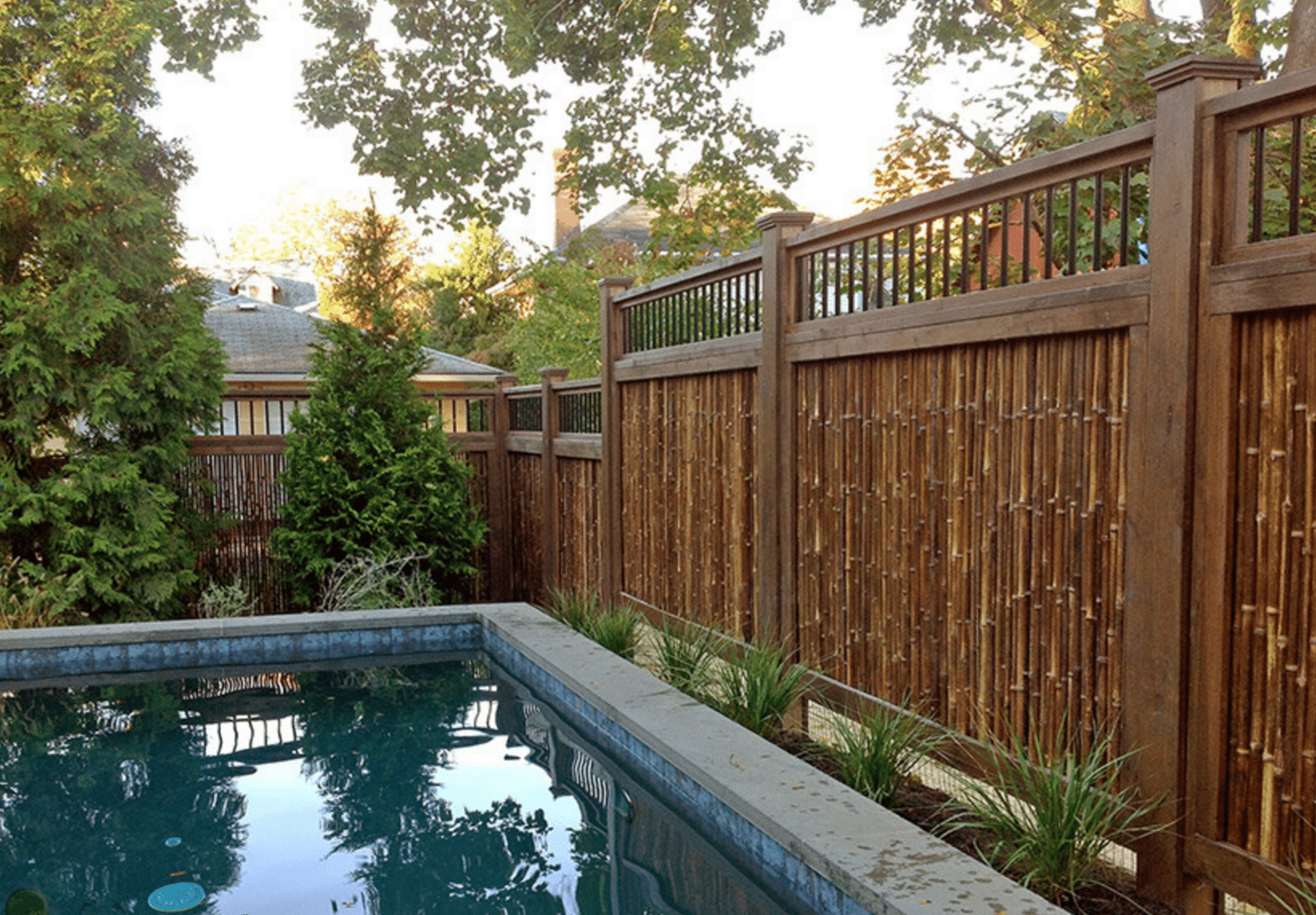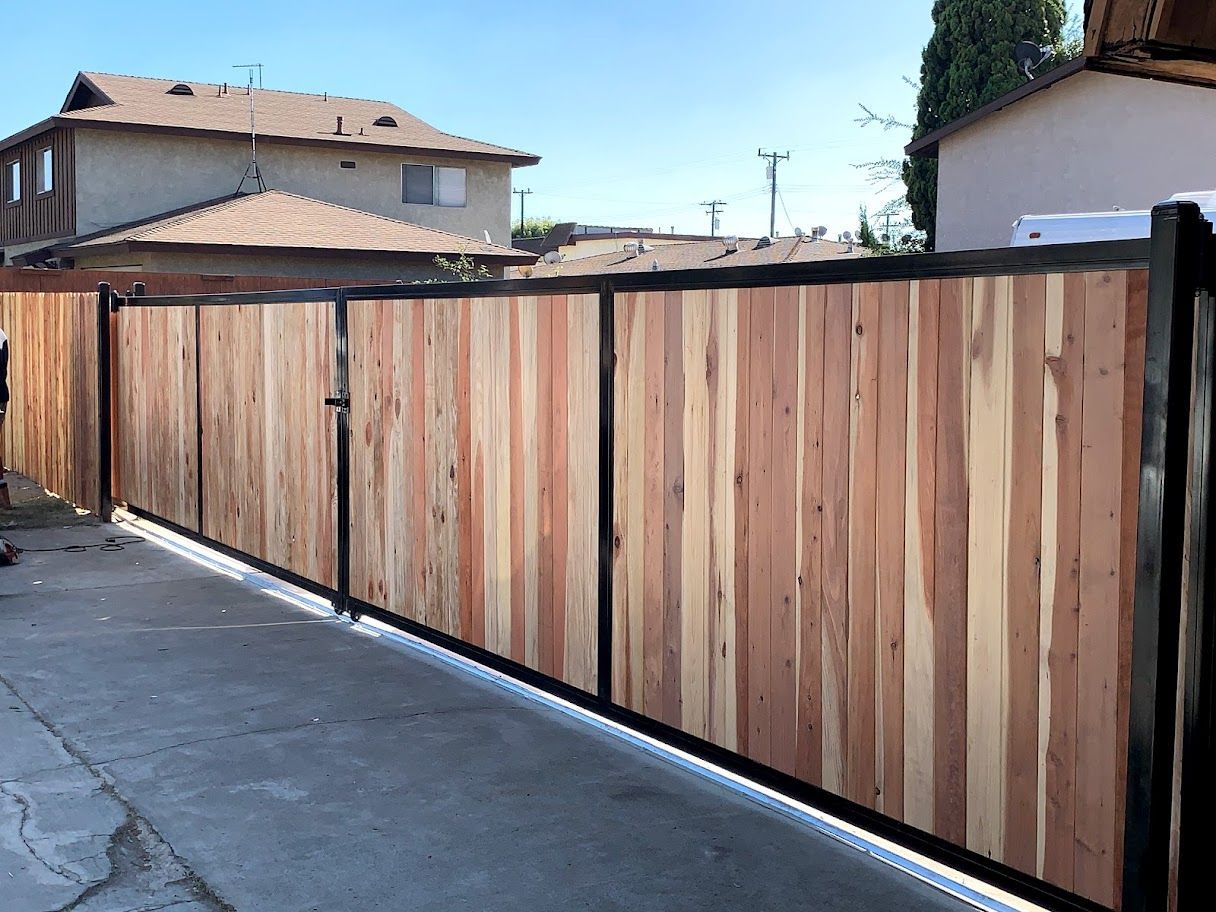Featured
Setting up a fence on your household property is a financial investment that boosts privacy, security, and aesthetic appeal. Whether you're including an ornamental touch to your backyard or ensuring security for animals and youngsters, comprehending the expense of fence installment is necessary. The total cost depends upon numerous elements such as the kind of product, size of the area to be fenced, and any added features or solutions called for. Below is an in-depth guide to aid you approximate the price of your fence setup.
Timber Fence: Timber fencings are a popular option for properties as a result of their all-natural look and convenience. They commonly set you back in between $10 and $30 per straight foot, with higher-end timber like cedar or redwood being much more costly. Timber fences likewise need routine maintenance, consisting of staining and securing, which can raise the lasting expense.
Plastic Secure fencing: Plastic fences are low-maintenance and highly long lasting, supplying a clean, modern appearance. These fences typically cost in between $20 and $40 per straight foot. Plastic fencings are much more costly upfront, they last longer and call for less maintenance than wood, making them a great long-term investment.
![]()
Chain Web Link Fencing: Wire mesh fence are an affordable alternative for safeguarding your home. They usually set you back between $10 and $20 per linear foot. While they supply superb safety and security and durability, they may not offer the exact same aesthetic charm as wood or plastic fencings. Wire mesh fence are suitable for large locations or residential or commercial properties that focus on safety over visual appeals.
Wrought Iron Fencing: Recognized for its elegant appearance and robust safety features, functioned iron fencing is just one of the most long lasting alternatives. The price of setting up a wrought iron fence generally ranges from $25 to $50 per straight foot. This product is highly adjustable, yet the initial investment is greater compared to various other alternatives.
Aluminum Fencing: Aluminum fencings are a fantastic different to functioned iron, supplying similar sturdiness and aesthetic charm however at a more inexpensive cost. Light weight aluminum fencings usually cost in between $20 and $40 per linear foot. They are rust-resistant and low-maintenance, making them an optimal choice for house owners searching for toughness and design.
If your building has a sloped or unequal terrain, the installment procedure might come to be extra complex. Irregular ground can need added labor to dig deeper post openings or adjust the fence's alignment. This could add extra time and expenses to the setup.
![]()
For basic installations, labor expenses can vary in between $1,000 and $3,000, depending on the sort of fencing and the size of the setup.
Permits: Several city governments need a permit for fencing setups, particularly if the fencing is or goes beyond a specific height put near residential property lines. Allow costs can vary widely, commonly setting you back in between $20 and $200, depending upon your location.
Gates: Including a gate or multiple gateways to your fencing will certainly raise the total cost. Gates can range from $100 to $1,000 or more, relying on the size and product of eviction. Custom-made gates or ornamental layouts will certainly contribute to the cost.
Landscaping or Website Prep Work: If your yard needs prep work, such as tree removal, brush clearing up, or grading, extra costs can accumulate. Website preparation can range from a few hundred bucks to over $1,000, relying on the level of the job required.
Old Fence Removal: If you're changing an existing fencing, you'll need to aspect in the price of getting rid of and getting rid of of the old products. This can cost anywhere from $300 to $1,000, depending upon the size of the fencing and the disposal method.
Wood Fencing: $1,500 to $3,000 for a 150-foot fencing. Vinyl Fence: $2,000 to $4,000 for a 150-foot fence. Chain Link Fencing: $1,000 to $2,500 for a 150-foot fencing. Wrought Iron Secure Fencing: $3,000 to $7,000 for a 150-foot fence. Aluminum Fence: $2,000 to $4,000 for a 150-foot fence. These expenses include both products and labor, but remember that the total rate will certainly rely on the certain details of your project.
Final thought. The cost of setting up a fencing on a domestic home can vary significantly depending on aspects like the type of material, building size, and setup intricacy. On average, home owners can expect to pay in between $1,000 and $7,000 for a fence installation, with higher-end materials like wrought iron and plastic being on the extra pricey end of the range.
- Product Costs. The kind of fencing product you pick is just one of one of the most substantial elements affecting the price of setup. Various products differ in cost based upon appearance, upkeep, and sturdiness requirements. Below are average price ranges per straight foot for typical fence materials:
Timber Fence: Timber fencings are a popular option for properties as a result of their all-natural look and convenience. They commonly set you back in between $10 and $30 per straight foot, with higher-end timber like cedar or redwood being much more costly. Timber fences likewise need routine maintenance, consisting of staining and securing, which can raise the lasting expense.
Plastic Secure fencing: Plastic fences are low-maintenance and highly long lasting, supplying a clean, modern appearance. These fences typically cost in between $20 and $40 per straight foot. Plastic fencings are much more costly upfront, they last longer and call for less maintenance than wood, making them a great long-term investment.

Chain Web Link Fencing: Wire mesh fence are an affordable alternative for safeguarding your home. They usually set you back between $10 and $20 per linear foot. While they supply superb safety and security and durability, they may not offer the exact same aesthetic charm as wood or plastic fencings. Wire mesh fence are suitable for large locations or residential or commercial properties that focus on safety over visual appeals.
Wrought Iron Fencing: Recognized for its elegant appearance and robust safety features, functioned iron fencing is just one of the most long lasting alternatives. The price of setting up a wrought iron fence generally ranges from $25 to $50 per straight foot. This product is highly adjustable, yet the initial investment is greater compared to various other alternatives.
Aluminum Fencing: Aluminum fencings are a fantastic different to functioned iron, supplying similar sturdiness and aesthetic charm however at a more inexpensive cost. Light weight aluminum fencings usually cost in between $20 and $40 per linear foot. They are rust-resistant and low-maintenance, making them an optimal choice for house owners searching for toughness and design.
- Residential Property Dimension and Installment Intricacy. The dimension of your residential or commercial property plays a considerable function in establishing the overall price of installment. Larger homes might need even more intricate installations, additional entrances, or special functions, which can boost the complete price.
If your building has a sloped or unequal terrain, the installment procedure might come to be extra complex. Irregular ground can need added labor to dig deeper post openings or adjust the fence's alignment. This could add extra time and expenses to the setup.

- Labor Costs. Labor is a considerable portion of the expense of fence installment. An easy timber fence may take simply a few days to set up, while a personalized iron or vinyl fence could take much longer.
For basic installations, labor expenses can vary in between $1,000 and $3,000, depending on the sort of fencing and the size of the setup.
- Additional Prices. The material and labor expenses, there might be additional expenses to take into consideration when setting up a fence:
Permits: Several city governments need a permit for fencing setups, particularly if the fencing is or goes beyond a specific height put near residential property lines. Allow costs can vary widely, commonly setting you back in between $20 and $200, depending upon your location.
Gates: Including a gate or multiple gateways to your fencing will certainly raise the total cost. Gates can range from $100 to $1,000 or more, relying on the size and product of eviction. Custom-made gates or ornamental layouts will certainly contribute to the cost.
Landscaping or Website Prep Work: If your yard needs prep work, such as tree removal, brush clearing up, or grading, extra costs can accumulate. Website preparation can range from a few hundred bucks to over $1,000, relying on the level of the job required.
Old Fence Removal: If you're changing an existing fencing, you'll need to aspect in the price of getting rid of and getting rid of of the old products. This can cost anywhere from $300 to $1,000, depending upon the size of the fencing and the disposal method.
- Overall Estimated Costs. Below are harsh cost quotes for usual residential fence installations based upon the product type and home size:
Wood Fencing: $1,500 to $3,000 for a 150-foot fencing. Vinyl Fence: $2,000 to $4,000 for a 150-foot fence. Chain Link Fencing: $1,000 to $2,500 for a 150-foot fencing. Wrought Iron Secure Fencing: $3,000 to $7,000 for a 150-foot fence. Aluminum Fence: $2,000 to $4,000 for a 150-foot fence. These expenses include both products and labor, but remember that the total rate will certainly rely on the certain details of your project.
Final thought. The cost of setting up a fencing on a domestic home can vary significantly depending on aspects like the type of material, building size, and setup intricacy. On average, home owners can expect to pay in between $1,000 and $7,000 for a fence installation, with higher-end materials like wrought iron and plastic being on the extra pricey end of the range.
Latest Posts
Full Circle Strategic Marketing - Elevate Marketing Strategies with Tailored Strategies
Published Apr 17, 25
2 min read
Full Circle Strategic Marketing - Rule Google Rankings with Powerful SEO Plans
Published Apr 17, 25
2 min read
Low-Cost Car Services: Expert Repairs That Fit Your Budget
Published Apr 17, 25
2 min read
More
Latest Posts
Full Circle Strategic Marketing - Elevate Marketing Strategies with Tailored Strategies
Published Apr 17, 25
2 min read
Full Circle Strategic Marketing - Rule Google Rankings with Powerful SEO Plans
Published Apr 17, 25
2 min read
Low-Cost Car Services: Expert Repairs That Fit Your Budget
Published Apr 17, 25
2 min read